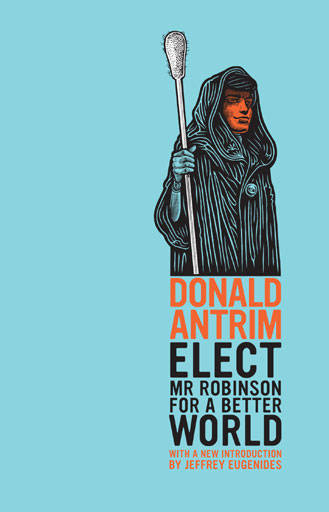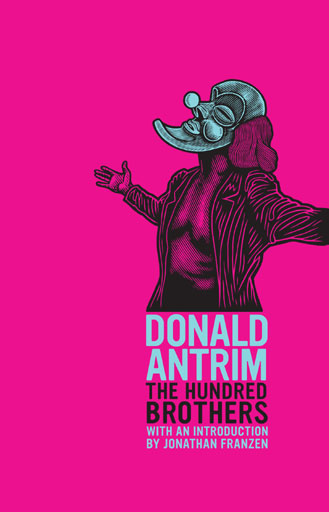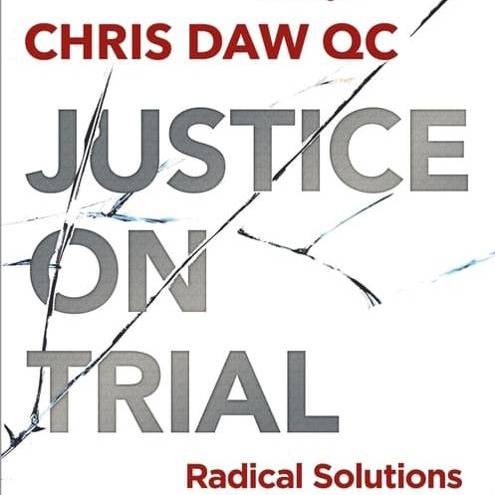 Elect Mr Robinson for a Better World
Elect Mr Robinson for a Better World
This brace of quirky, compelling novels appeared in the ’90s: Elect Mr Robinson for a Better World was Donald Antrim’s first (1993); The Hundred Brothers followed in 1998. They have been reissued, with admiring introductions by Jeffrey Eugenides and Jonathan Franzen respectively. And about time too.
To enter an Antrim fiction is to take part in a world that operates along almost realistic lines, but with crucial, skewed differences. Both of these take place in enclosed worlds: Elect Mr Robinson... in an apparently closed off seaside town where individual houses have elaborate defence systems and families conduct open warfare in the woods; The Hundred Brothers in an (again, apparently) even smaller situation: the “red library” of a mansion that seems to be destroying itself, whilst the hundred brothers of the title (bar one) drink, fight and prepare to perform an ancient ritual.
Antrim shares something of Don DeLillo’s marmoreal prose, and his tendency to focus on a single, male narrator, and a plot that leads up (oh, so tensely) to a moment of hideous, violent climax. George Saunders is a near contemporary, and his short stories inhabit a similar place where allegory is present, but elusive; where humour and horror cohabit; and where the minutiae of American life are dissected.
The works under review are both narrated from the perspective of middle-aged men whose interplay with those around them is based on power, or rather lack of it. The Hundred Brothers has a more straightforward linear narrative: the brothers meet in order to find the misplaced urn that contains their father’s ashes. Elect Mr Robinson... is more complex, in that it jumps back and forth, leading you in one direction before focusing on the events that lead to its horrifying end.
Ritual plays a very important part in the books. Both, whilst enacted in modern terms and utilising modern tropes, participate in questioning what makes us who we are, by looking at things so old we can barely understand them – and yet they are still powerful. In The Hundred Brothers it is the Dance of the Corn King, a yearly chase through the red library which ends with the Corn King – Doug – being attacked and possibly killed. Elect Mr Robinson... sees the town succumbing to a form of therapy that induces you to find your inner animal. Paul, the narrator, is a bison; his wife, however, is a coelacanth, which puts a barrier between them, and elevates her to a quasi-mythical function as a kind of priestess – goddess, even. An important motif involves focusing on a single book (in The Hundred Brothers, a treatise on heraldry; in Elect Mr Robinson..., The Egyptian Book of the Dead). Antrim also salts the narratives with academic disquistions on family and society. These, however, never seem to hold things up.
Sacrifice within these rituals is an important factor: the Corn King must die so that the crops can grow. In Elect Mr Robinson, the myth of Osiris, torn apart and scattered across the land, is reflected horribly in two events that bookend the narrative: the first when the Mayor is drawn and quartered (but with cars instead of horses); the second as a kind of fulfilment of a private desire that finds its embodiment in wilful perversion.
Though both books seem to look at isolated societies, there are intimations of things at the edges, on the outside. Doug is bothered by people who seem to listlessly hang around on the brothers’ estate; in Elect Mr Robinson the external forces of the animal magus threaten to pull apart the town – Paul is the only land mammal; everyone else is a fish of some sort.
So what is Antrim doing? This distorted world offers an insight into how our essentially primitive natures rub against society. Somewhere in our heritage we all can claim animals; a little further on we are essentially violent men living in small societies. He is perhaps trying to show that the veneer of civilisation is simply that, and underneath the shine – the endless library shelves, the restaurants, the schools – there isn’t much stopping us from retreating into people who kill to make the sun rise. Superstition, after all, is still prevalent, only transferred into other modes of thinking.
A sense of ruin permeates both books: things are, quite literally, falling apart; but it doesn’t seem as if “the centre cannot hold.” Rather the sense is that these spaces are somehow locked into continuing spirals of destruction: like a blood ritual, moving towards chaos to instil order; and repeating, over and over again. It’s quite a frightening vision, and one that JG Ballard would understand. Antrim’s strangeness has its own logic: like a nightmare. And like a nightmare, it gives us tools with which we can face things in the real world.


